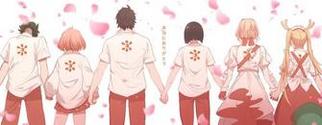Episode 1: The End of Harem History
So, what Nietzsche was trying to do with his philosophy was combat nihilism: He thought Christianity had exhausted itself and the world, that it was throwing the world away for an imaginary eternity, but he didn't want to lose the possibility of meaning religion supplies. He was worried people would slide from decadent religion, which already valued something imaginary as far as he was concerned, to not valuing anything at all, to a spirit of leveling and languishing where we are rather than excelling at anything and loving the earth and life. To do that he encouraged people to embrace new, courageous ideas—he called them new virtues—and thus exalt our ability to choose in life, and to choose difficult ways of life that shake people out of their decadent stupor. He did not believe it didn't matter what we chose, that lacking religious morality everything was permissible—because he hated the life of languishing, of cowardice, and of pettiness. This is why his hero, Zarathustra, is a strange preaching hermit who disdains even the pupils he gathers, that they might not become too attached to him and thus languish at his level rather than excel beyond, to the ubermensch. And Nietzsche hated justifications of mediocrity or suffering, the kind of self-denial that leads people to become self-righteous and act like they're more moral than everyone else. So he'd dislike the liberal defense of the poor as inherently disadvantaged, but he'd also dislike the conservative disdain of the poor because it acts like no violence was involved in creating the rich/poor divide. For Nietzsche it is the will that must be acknowledged in everything. We created our moral and historical condition, and we must take responsibility for and ownership of what we've done.
Obviously I am talking about why The 100 Girlfriends That Really, Really, Really, Really, REALLY Love You is terrible. And not only that, it is the worst: It is the Last Man of the harem genre. For behold: Rentaro is enslaved. He has no agency, he follows the harem track lay out for him, nothing is his fault, and what he must do is patiently suffer that he might receive some kind of reward. And there is no question of the reward, or that in the end he will deserve it. He undergoes great purgative struggles, already punching and dirtying himself, just as the old monastics tortured themselves to gain a heavenly reward—and in the end it is all for the show of it. The four-leaf clovers lose their value as talismans causing love and instead become mere signs of Rentaro's goodness. The world is emptied of meaning, even as a literal love god is invoked to explain the situation. It's all religion, linearity, and ease.
And there could be no greater contrast between Rentaro and Naoya, the ubermensch protagonist of Girlfriend, Girlfriend: Naoya has no standard virtue; his destiny is not fated even though he is in a harem anime. He has battled every step to keep his harem, and his dedication to it, and his own stubborn virtue, make him a champion of will. He embraces his stupid and will go where it leads, heedless of its end. He believes he can make that end. That which is absurd he makes his own honor, and thus he earns his girls.
And aside from this analysis actually kind of making sense, which is ridiculous enough, it also explains why Girlfriend, Girlfriend manages to be funnier than The 100 Girlfriends That Really, Really, Really, Really, REALLY Love You: The humor in this first episode was almost all of the meta, winking, dial-tropes-to-11 variety. Yes, show, I can see very well what the joke is. The only part that I actually liked was when tsundere screamed at seeing the confession and dropped all those cans everywhere. That was indeed a dialing-up, but of physicality rather than trope. All the love god humor was incredibly tiresome. Girlfriend, Girlfriend is funny because of Naoya's doubling down in everything, and because his harem becomes invested in playing out the logic of his harem virtue to its end.
I'm not sure how long I'll keep up with this; I usually stick around at least a few episodes when a show gives me this much to think about. But I think I'll end up deciding Renai Flops does this kind of thing better.





































